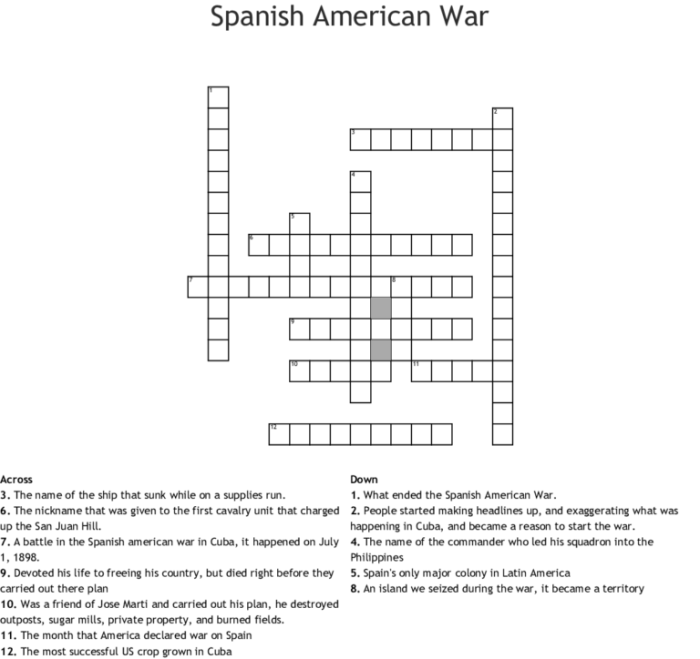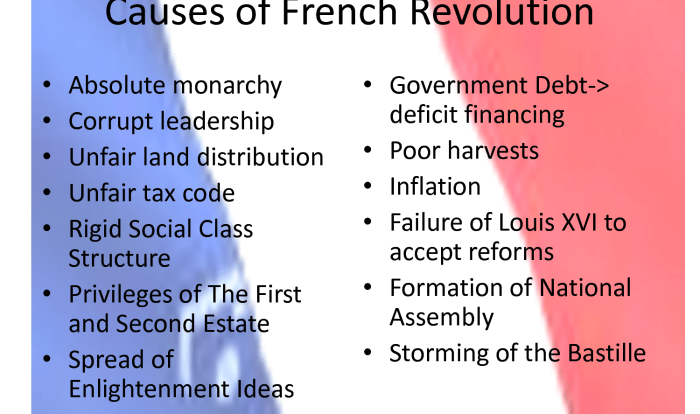Analyzing the spanish american war worksheet – Embarking on an in-depth analysis of the Spanish-American War, this comprehensive worksheet serves as an invaluable resource for delving into the historical context, causes, course, impact, and historiography of this pivotal conflict.
This worksheet provides a structured framework for understanding the political, economic, and imperialistic factors that fueled the war, examining the key events and battles that shaped its course, and exploring the territorial and global repercussions that ensued.
Historical Context

The Spanish-American War, fought from 1898 to 1899, was a pivotal moment in American history. Its origins can be traced to a complex interplay of political, economic, and ideological factors.
Politically, the United States was eager to expand its influence in the Caribbean and the Pacific. Economically, American businesses saw opportunities in Cuba and the Philippines, which were both Spanish colonies. Ideologically, the United States was driven by a belief in its own superiority and a desire to spread its values and institutions around the world.
Timeline of Key Events
- 1895: Cuban Revolt begins against Spanish rule.
- 1898: USS Maine explodes in Havana harbor, killing 260 American sailors.
- April 1898: United States declares war on Spain.
- May 1898: Battle of Manila Bay, Spanish fleet destroyed.
- July 1898: Spanish surrender in Cuba.
- August 1898: Treaty of Paris ends the war.
Role of Imperialism and Expansion
The Spanish-American War was part of a larger pattern of American imperialism in the late 19th century. The United States had already acquired Alaska from Russia in 1867 and Hawaii in 1898. The war with Spain gave the United States control of Puerto Rico, Guam, and the Philippines.
Causes of the War
Cuban Revolt
The Cuban Revolt was a major factor in the outbreak of the Spanish-American War. The Cuban people had been fighting for independence from Spain since 1895. The United States supported the Cuban rebels, and the Spanish government accused the United States of interfering in its internal affairs.
Sinking of the USS Maine
The sinking of the USS Maine in Havana harbor on February 15, 1898, was a turning point in the lead-up to war. The United States blamed Spain for the explosion, although the cause of the explosion has never been conclusively determined.
Yellow Press and Public Opinion
The yellow press, a group of newspapers known for their sensationalism, played a major role in shaping public opinion in favor of war. Newspapers such as the New York Journal and the New York World published exaggerated and inflammatory stories about Spanish atrocities in Cuba.
Course of the War: Analyzing The Spanish American War Worksheet
Major Battles and Campaigns
The Spanish-American War was fought on land and sea in Cuba, Puerto Rico, and the Philippines.
- Battle of Manila Bay(May 1, 1898): American naval victory that destroyed the Spanish fleet.
- Battle of Santiago de Cuba(July 3, 1898): American land and naval victory that led to the surrender of the Spanish forces in Cuba.
- Battle of San Juan Hill(July 1, 1898): American victory that helped to capture the city of Santiago de Cuba.
Technological Advantages and Disadvantages
The United States had a number of technological advantages over Spain, including better ships, guns, and communication systems. The Spanish, on the other hand, had a larger army and were fighting on their own territory.
Role of Naval Power
Naval power played a decisive role in the Spanish-American War. The American navy was able to blockade Spanish ports and cut off supplies to the Spanish forces in Cuba and the Philippines.
Impact of the War
Territorial and Political Changes
The Spanish-American War resulted in significant territorial and political changes. The United States acquired Puerto Rico, Guam, and the Philippines from Spain. Cuba became an independent republic, but the United States retained a strong influence over its affairs.
Emergence of the United States as a Global Power, Analyzing the spanish american war worksheet
The Spanish-American War marked the emergence of the United States as a global power. The United States now had colonies in the Caribbean and the Pacific, and it played a major role in world affairs.
Impact on Cuba and the Philippines
The Spanish-American War had a profound impact on Cuba and the Philippines. Cuba gained its independence from Spain, but it became a de facto protectorate of the United States. The Philippines was also granted independence from Spain, but it was later annexed by the United States.
Historiography of the War
Major Historical Interpretations
There are a number of different historical interpretations of the Spanish-American War. Some historians see the war as a necessary step in the United States’ rise to global power. Others see the war as an unnecessary and imperialist adventure.
Debate over Causes and Consequences
There is still much debate over the causes and consequences of the Spanish-American War. Some historians argue that the war was caused by the Cuban Revolt and the sinking of the USS Maine. Others argue that the war was caused by the United States’ desire to expand its empire.
Role of Race and Imperialism
The Spanish-American War was also shaped by race and imperialism. The United States saw itself as a superior race, and it believed that it had a duty to spread its values and institutions around the world. This belief justified the United States’ annexation of Puerto Rico and the Philippines.
FAQ Guide
What were the primary causes of the Spanish-American War?
The Cuban Revolt, the sinking of the USS Maine, and the influence of the yellow press and public opinion were key factors.
How did the Spanish-American War impact the United States?
The war solidified the United States as a global power and led to the acquisition of territories such as Cuba, Puerto Rico, and the Philippines.
What are some of the major historical interpretations of the Spanish-American War?
Historians have debated the causes and consequences of the war, with varying perspectives on the role of imperialism, race, and public opinion.
